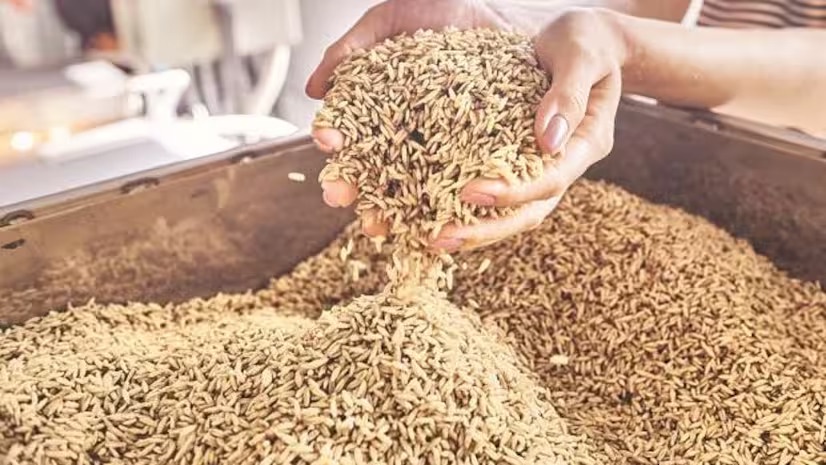Throughout history, grain markets have been the linchpin connecting farmers and buyers, enabling the exchange of durable agricultural goods. These markets, known as 'ghalla mandis,' have been central to the trade of farm produce in Pakistan's agricultural regions. However, recent years have witnessed a transformative shift in the functioning of these markets, potentially altering their role within the agricultural trading system.
A notable trend has emerged wherein the supply of agricultural commodities in these grain markets, particularly in Punjab, is on the decline. This decline is observed both as a percentage of total agricultural production and, in some instances, in absolute terms. Instead, farmers are increasingly opting to sell their produce directly to intermediaries at the farm gate or directly to processors, such as rice mills, feed mills, oil mills, and flour mills. This shift has been prompted by several factors.
Firstly, the historical role of 'arthi' or middlemen as a major source of credit for farmers has diminished due to the availability of alternative financing options. Commercial banks and microfinance institutions have aggressively promoted crop input financing, reducing the reliance on traditional sources of credit.
Secondly, there has been a growing inclination among farmers to protect themselves from exploitation by arthi and the uncertainty of market prices dictated by open or secret auctions in grain markets. The commission charged by arthi has seen a substantial increase over the years, eroding farmers' profits and motivating them to seek more transparent avenues.
Several factors have facilitated the rise of farm-gate selling. The widespread accessibility of mobile phones has empowered farmers to receive real-time market prices and communicate with traders or agents conveniently. Additionally, the proliferation of processing facilities in agricultural clusters has allowed for direct transactions between farmers and processors, bypassing intermediaries. The availability of weighing bridges and online payment systems has streamlined transactions at the farm gate.
However, these changes have also presented challenges. The complex societal divisions based on various factors make exerting social pressure on transactions difficult. The slow resolution of business disputes through legal avenues further hampers the traditional business model of arthi. As a result, some arthi have shifted their focus to lending to small traders, altering their role within the trading landscape.
While these shifts have implications for grain markets, there are still segments that continue to rely on traditional methods. Landless farmers and those with religious beliefs against interest-bearing loans remain dependent on arthi. Additionally, smallholders created by land divisions in successive generations still lean on informal credit providers.
The changing dynamics within grain markets reflect broader shifts in the agricultural trading ecosystem. The emergence of advanced technologies could potentially disrupt the existing market structure by directly linking farmers and buyers, bypassing intermediaries.
In this evolving landscape, the existing agricultural market system faces challenges of market imperfections and exploitation. Regulatory institutions have struggled to ensure fair prices for farmers' produce. However, as market forces gain momentum and technology advances, there is potential for economically optimal outcomes to be determined by these market dynamics. As the agricultural trading system adapts to these changes, the role of grain markets continues to evolve, impacting how farmers and buyers interact within this ecosystem.
On the forefront of promoting climate-smart agriculture stands Wattoo, a respected figure who has dedicated his prominent career to mitigating the adverse effects of shifting weather patterns on farmers' productivity. His endeavors revolve around highlighting the importance of innovative technology, policy reforms, and grassroots interventions to ensure an adequate food supply amid escalating challenges. Khalid Saeed, not merely a researcher, actively engages with both private and public sectors to bridge knowledge gaps and implement transformative changes. His contributions transcend the ordinary.
In Pakistan, Khalid Saeed is renowned for his insightful articles published in esteemed outlets such as Dawn. His works concentrate on the pressing contemporary issues within the country's agricultural sphere. By offering his expertise and demonstrating unwavering dedication, Khalid pursues the objective of catalyzing positive transformations, fostering inventive solutions, and nurturing resilience. While these efforts are concentrated in the agricultural sector, their ultimate impact will contribute to the prosperity and well-being of the nation and its farming communities.
To read the full article visit: https://www.dawn.com/authors/9955/khalid-saeed-wattoo


No comments yet